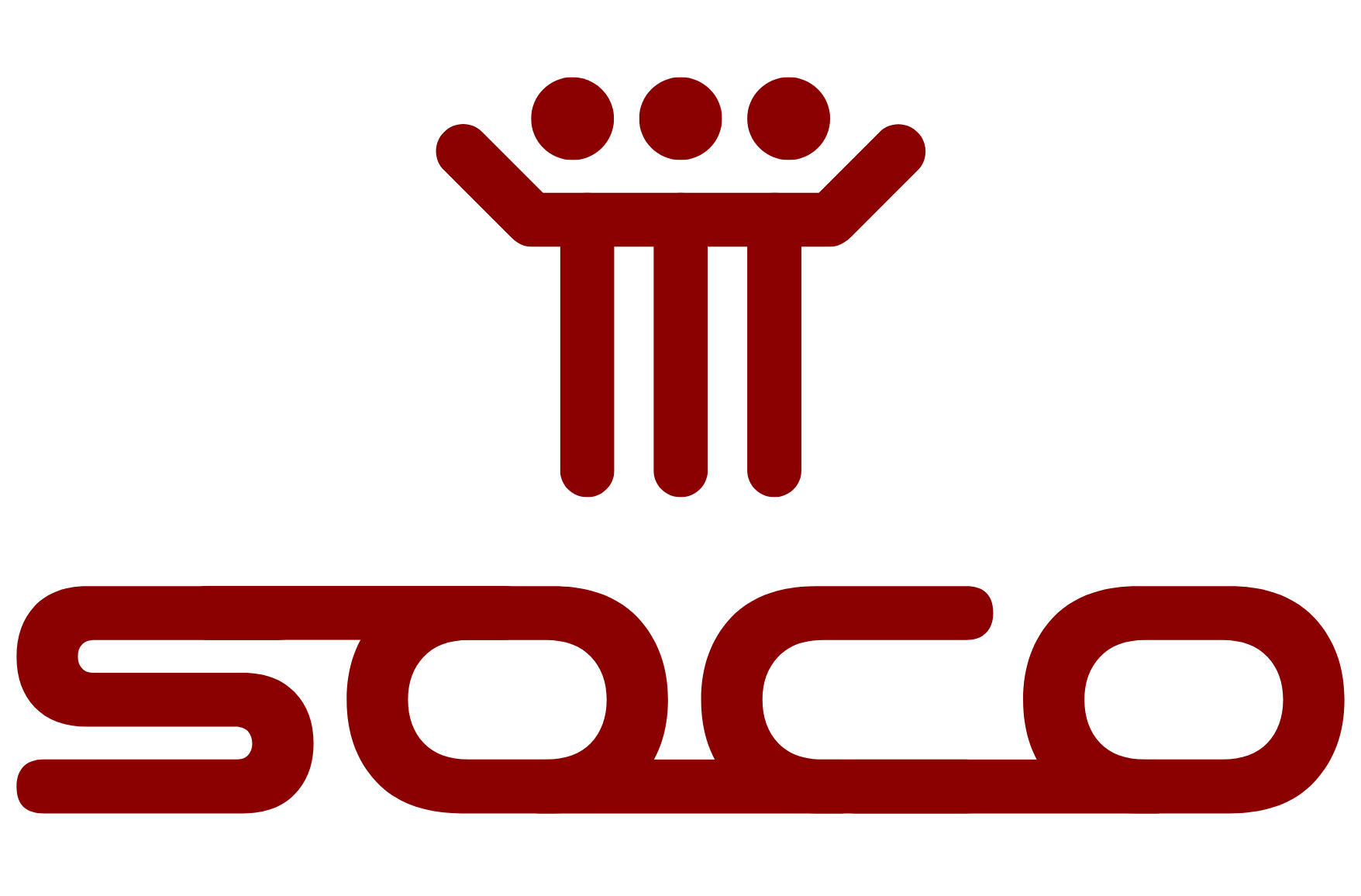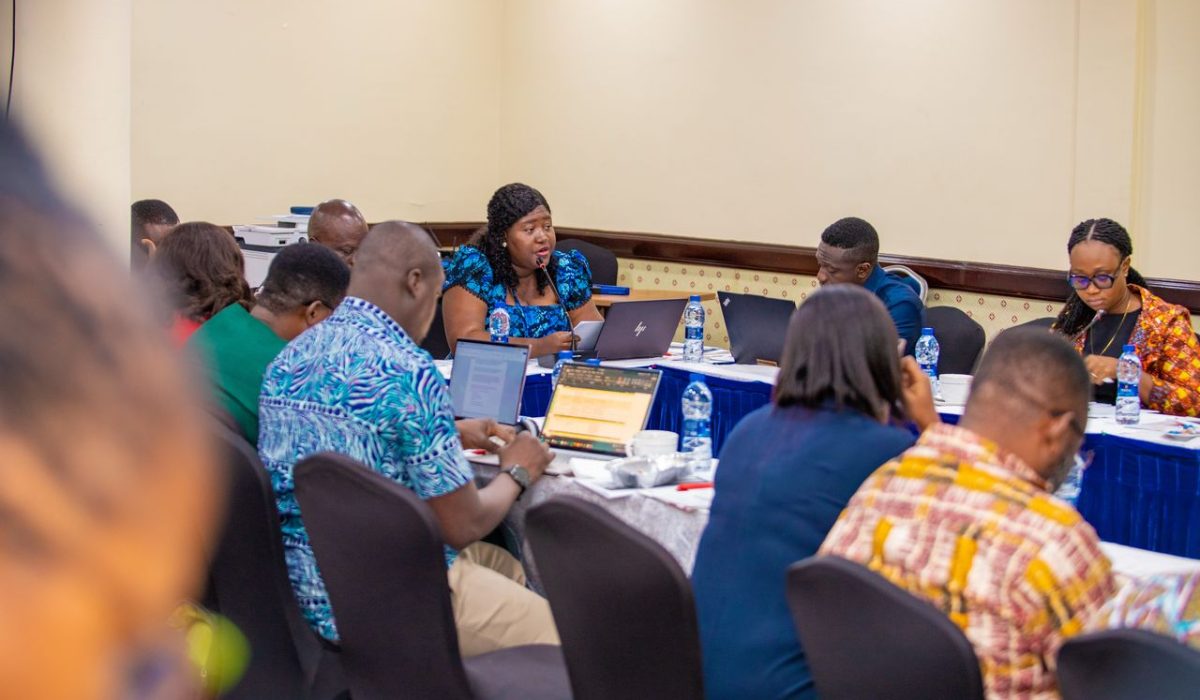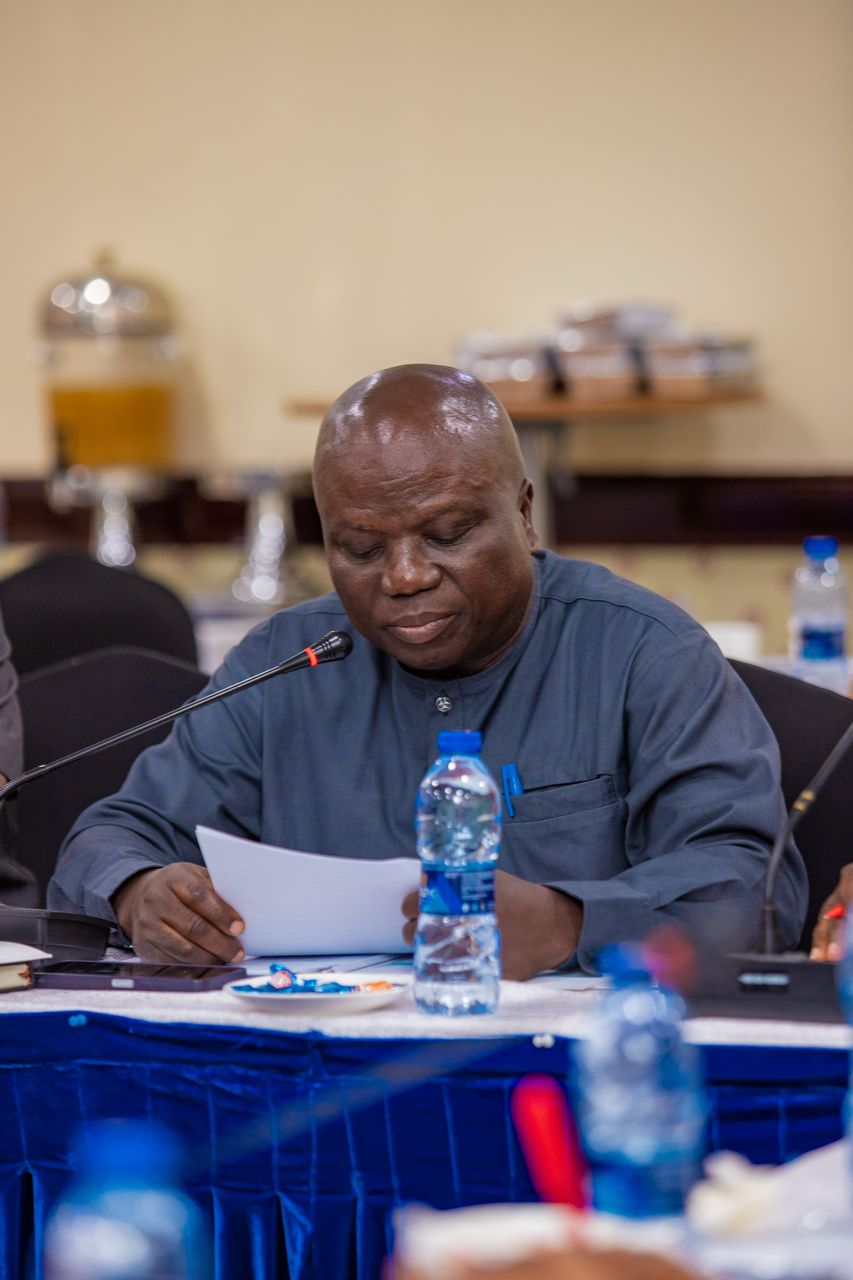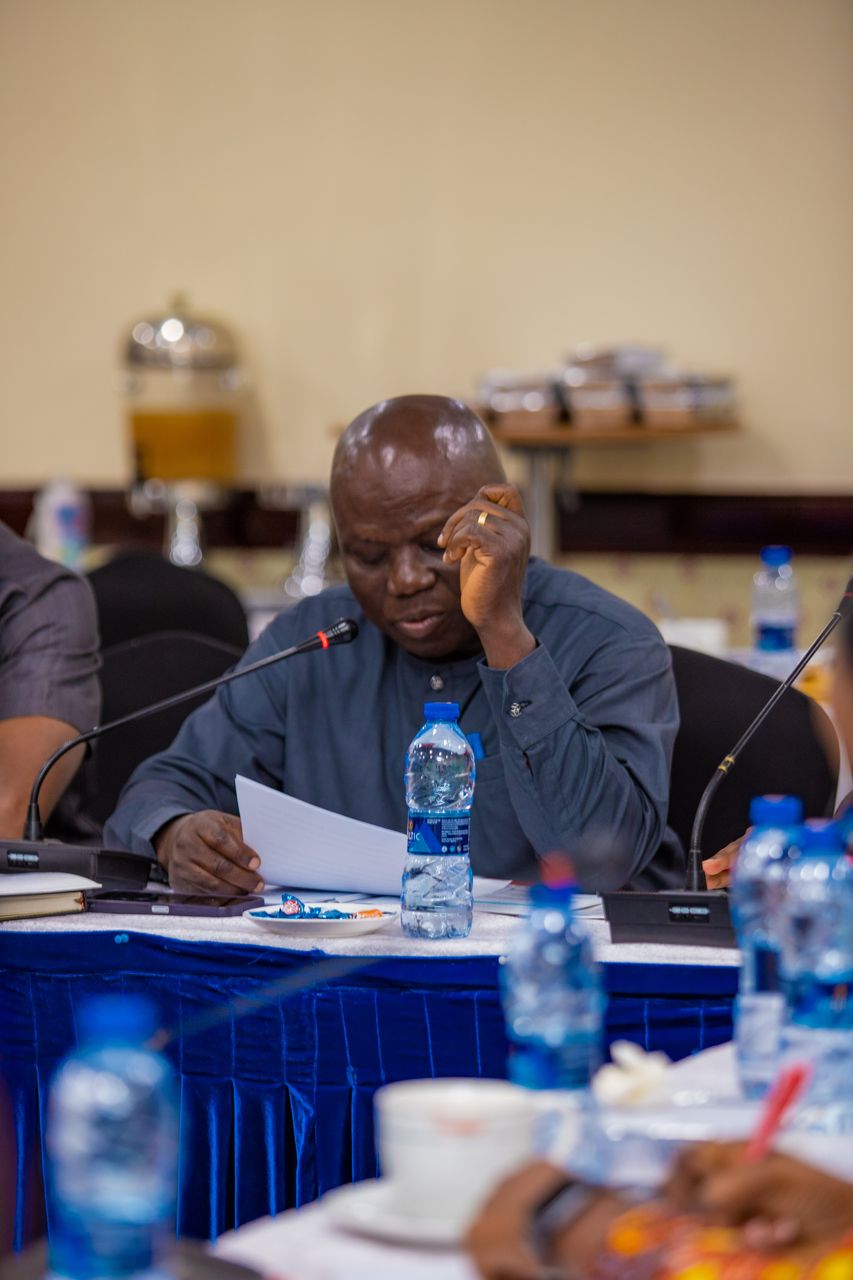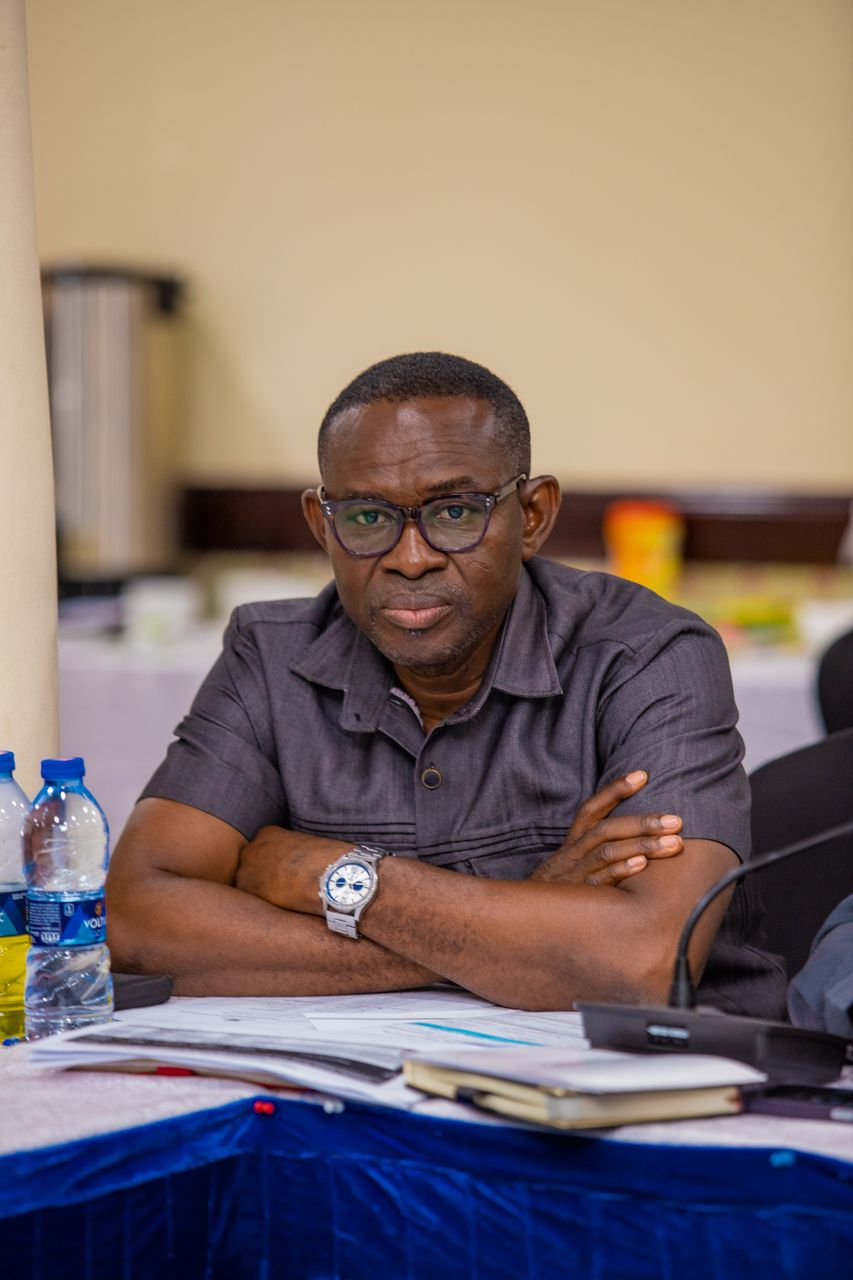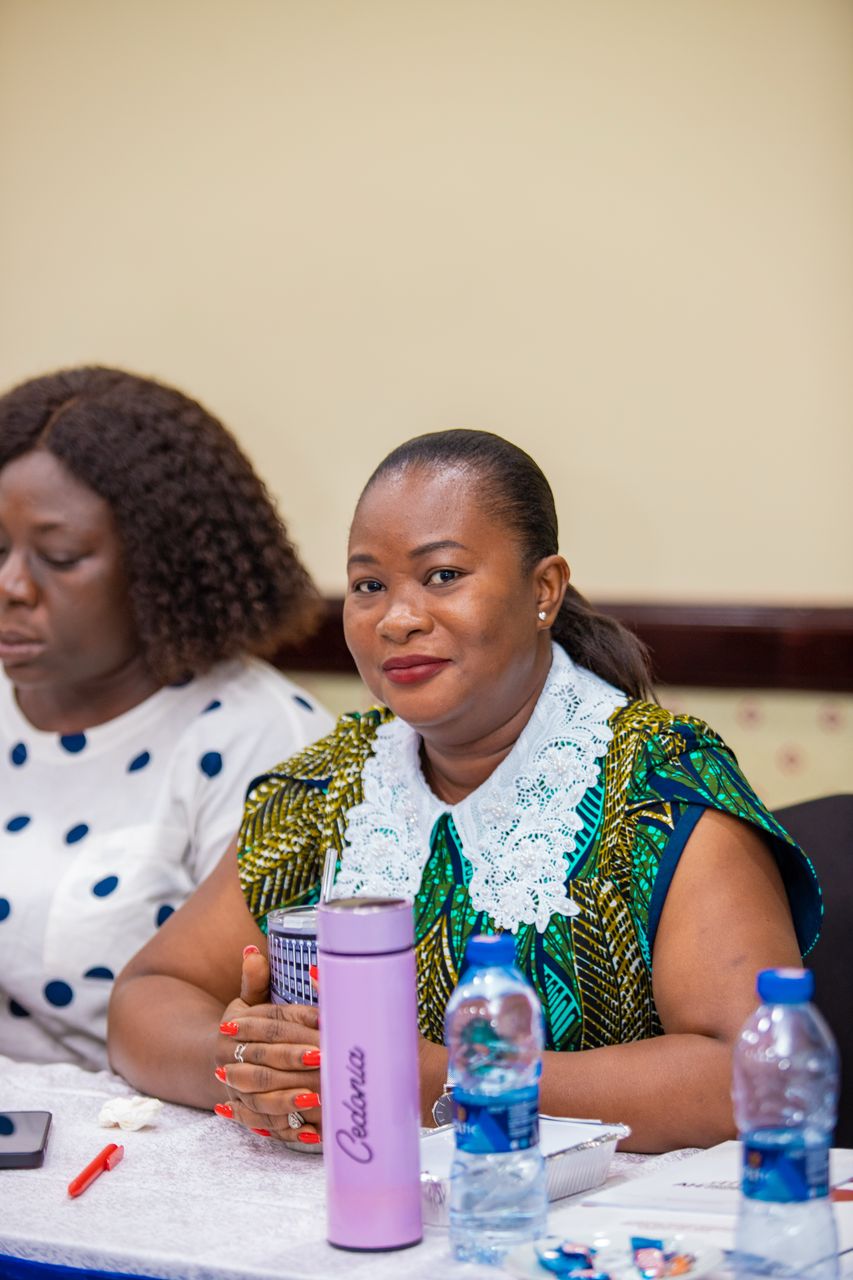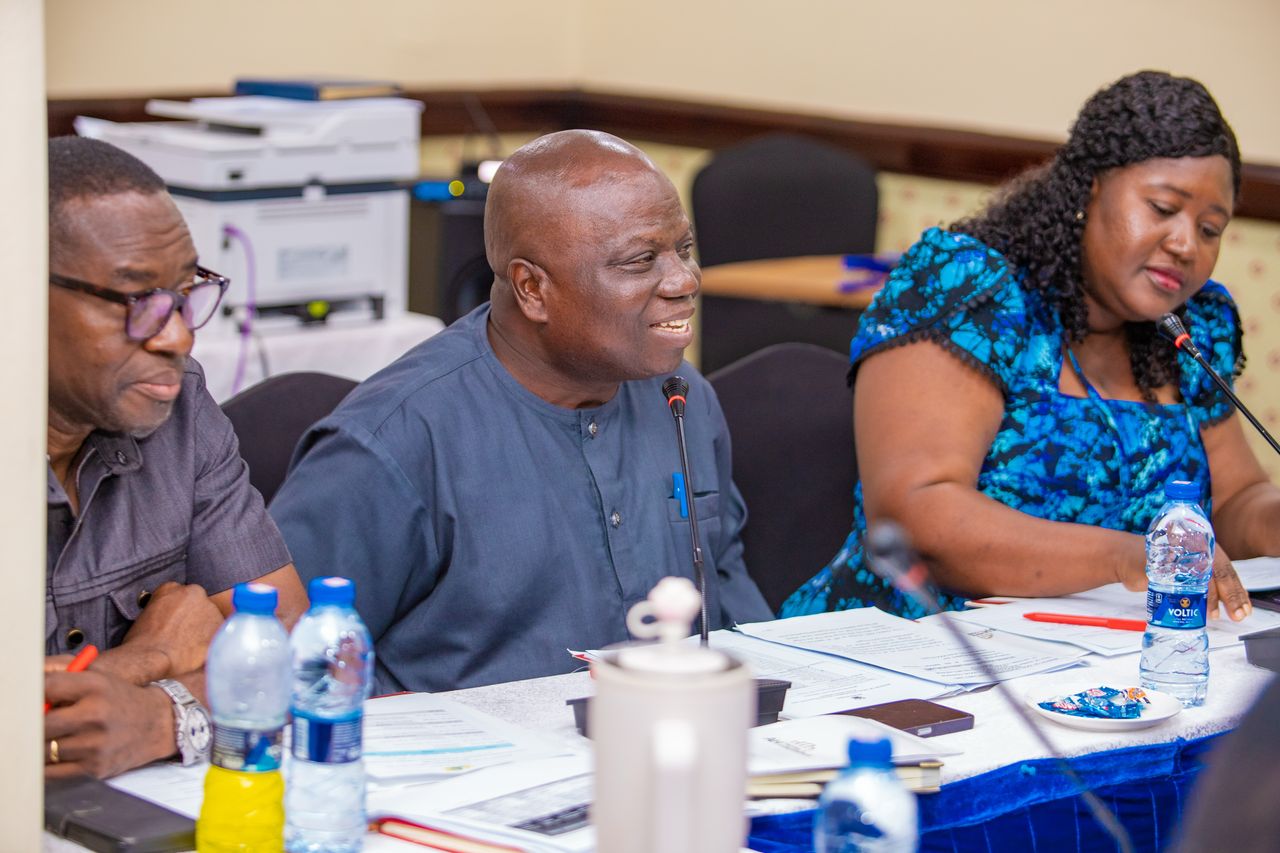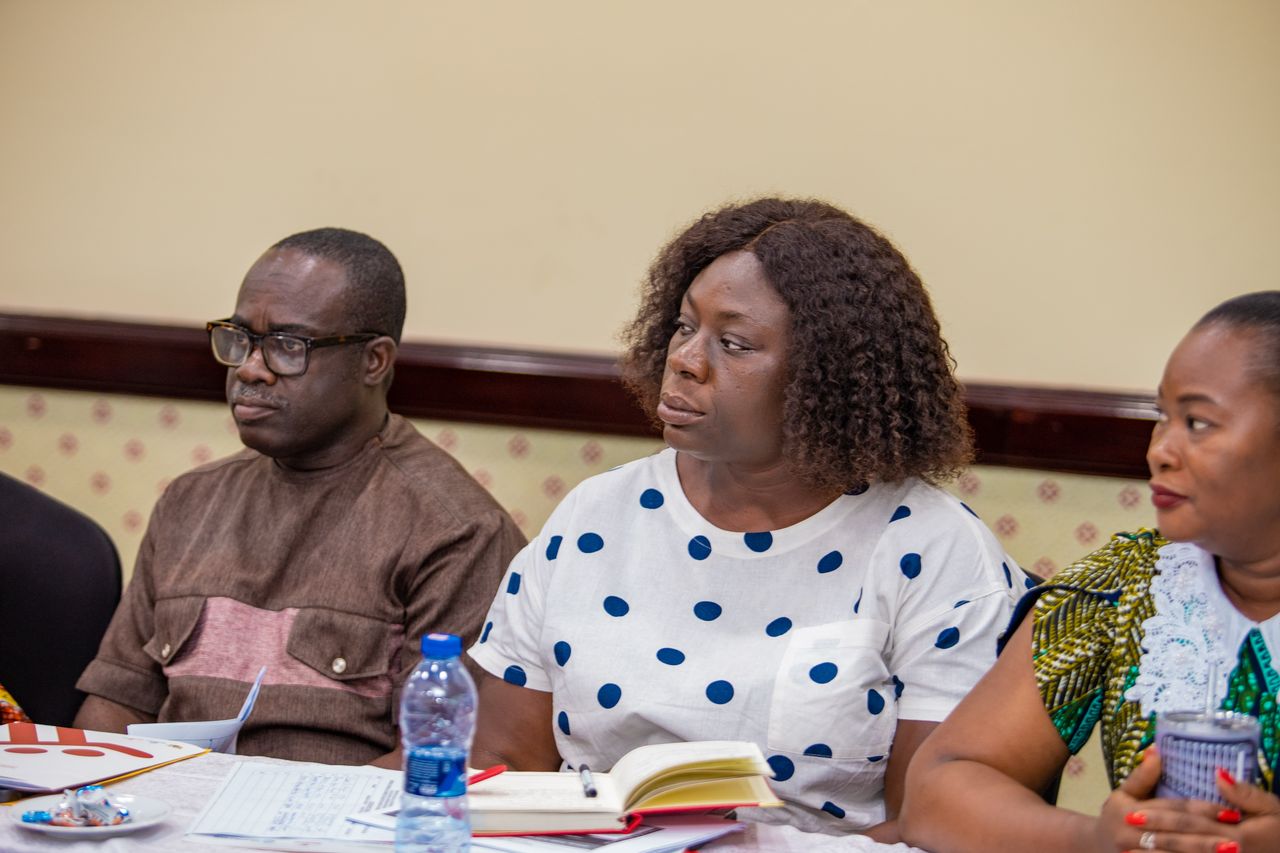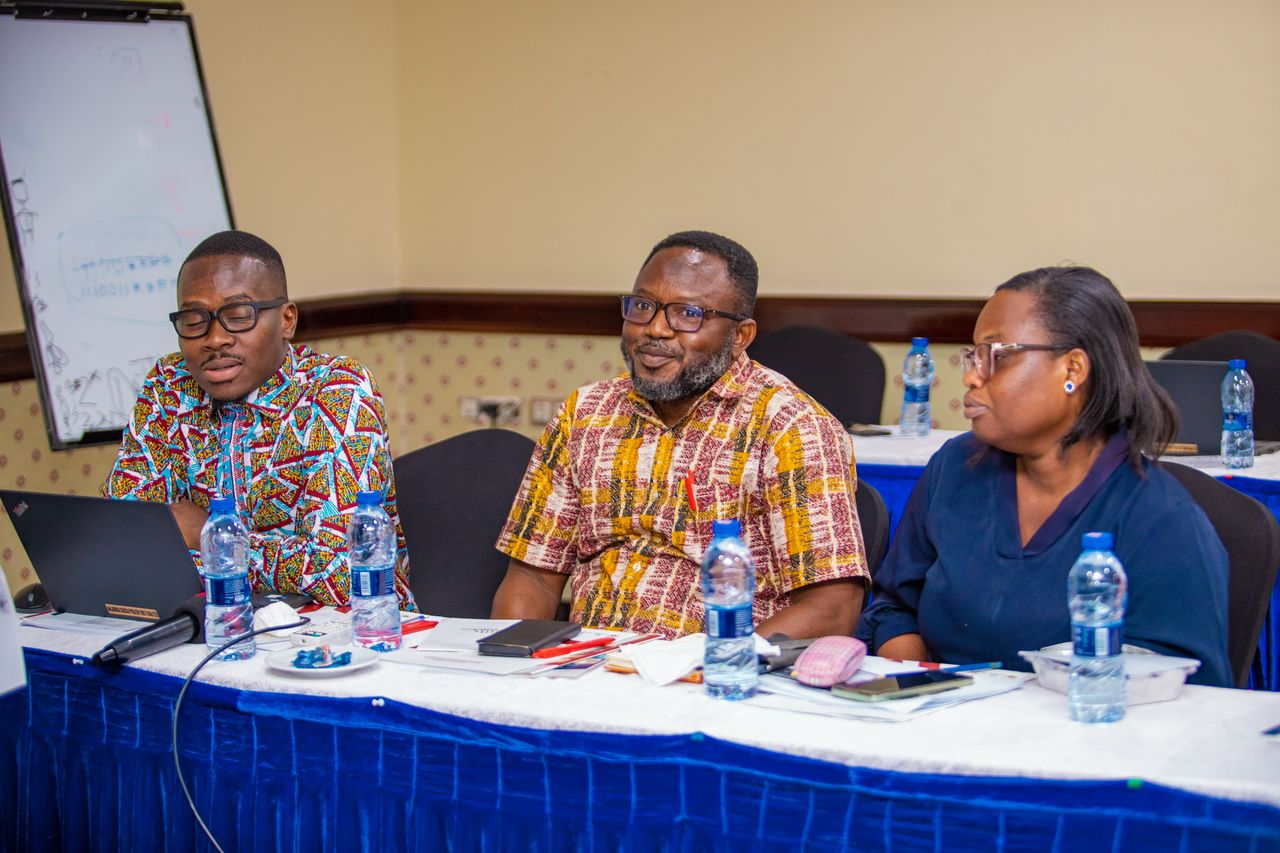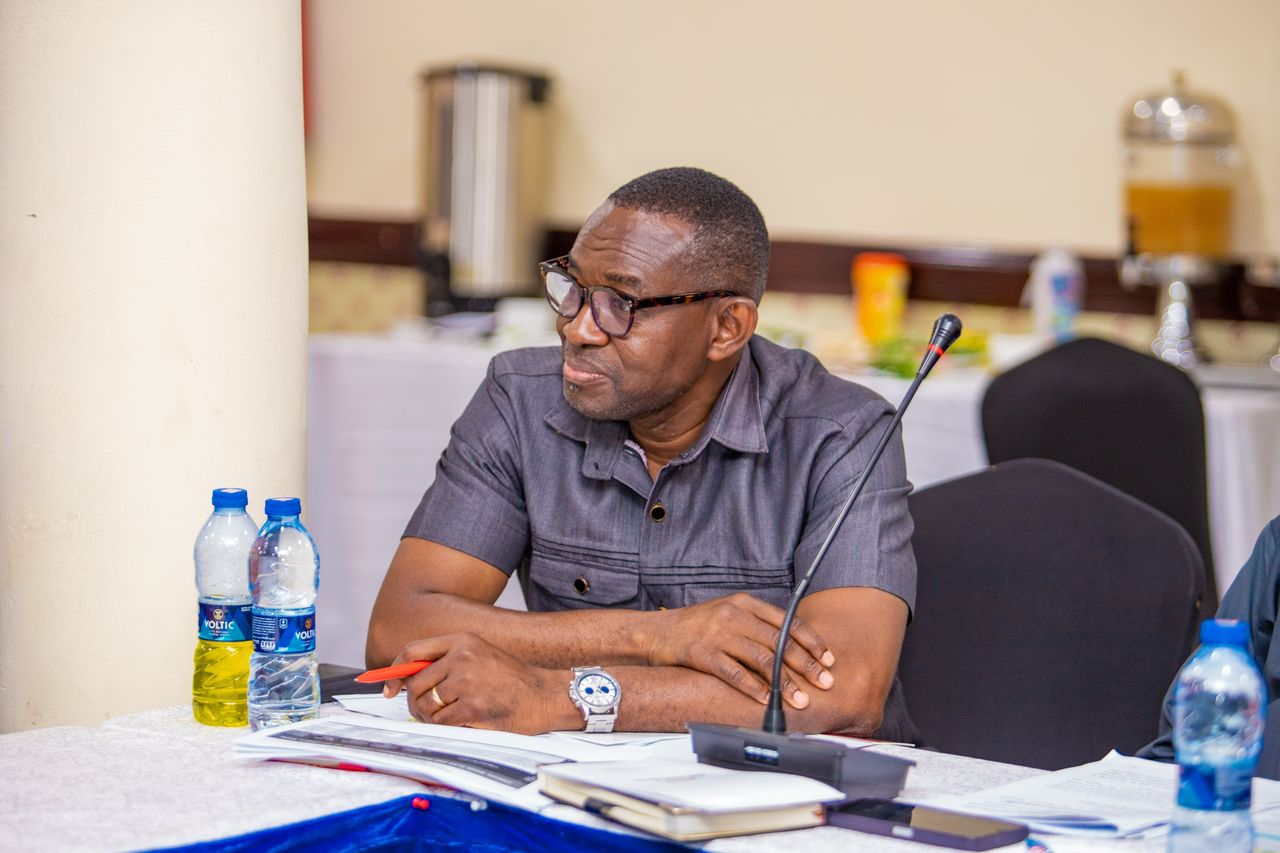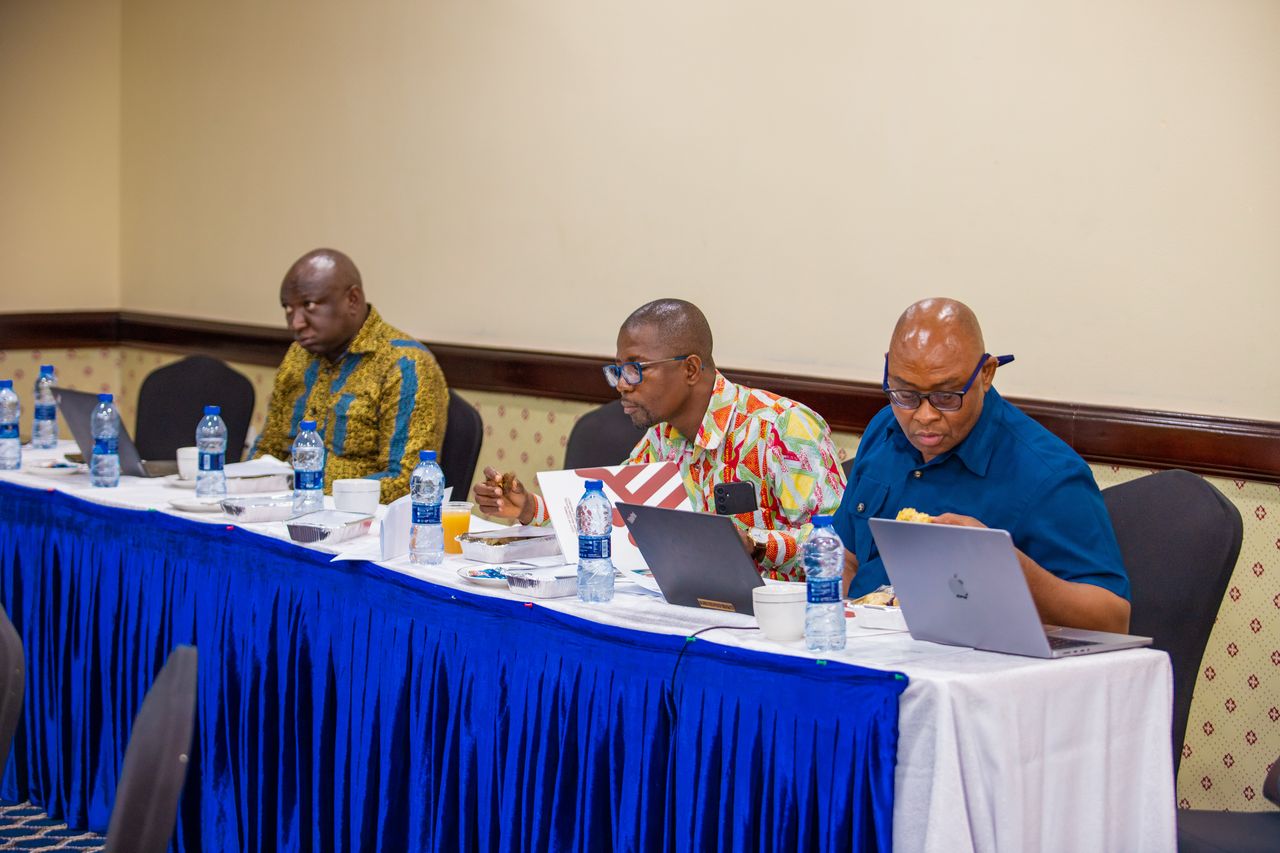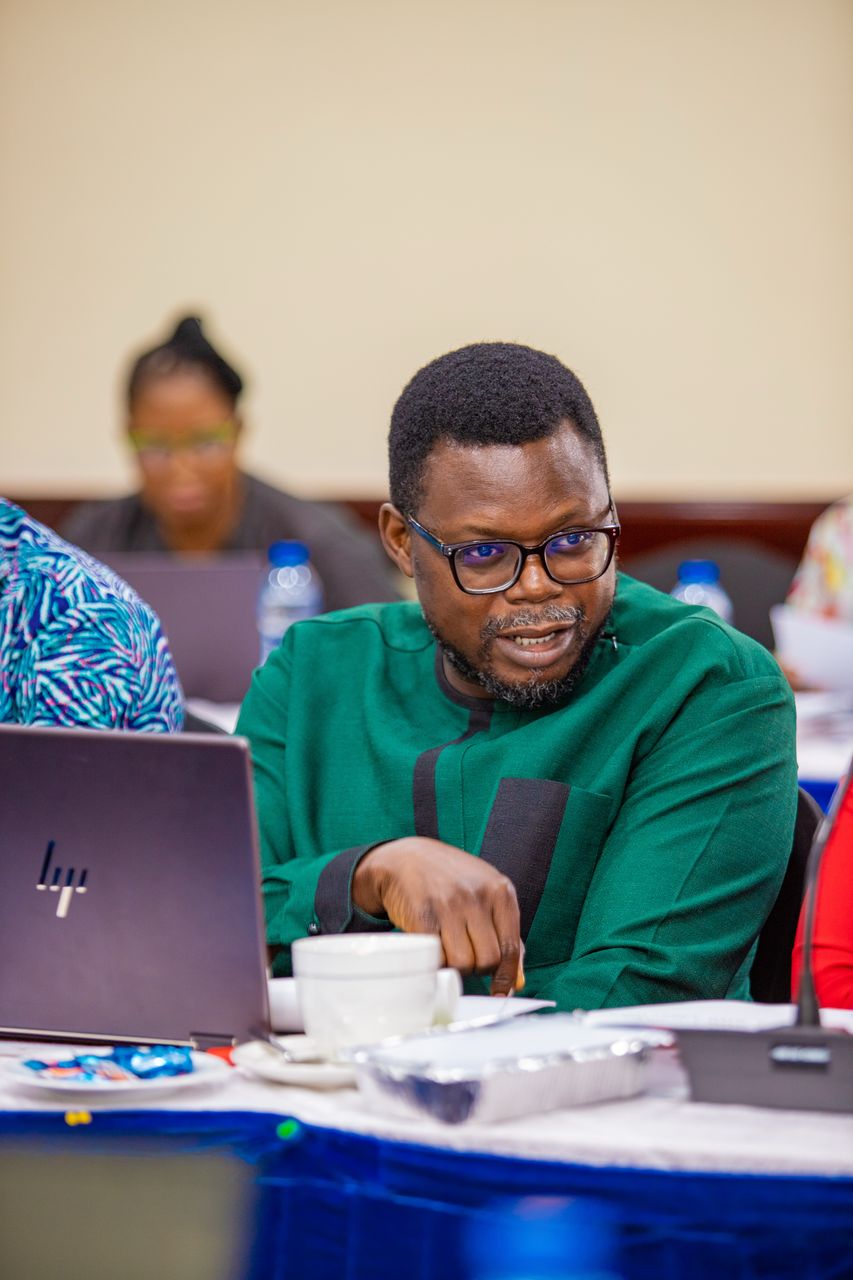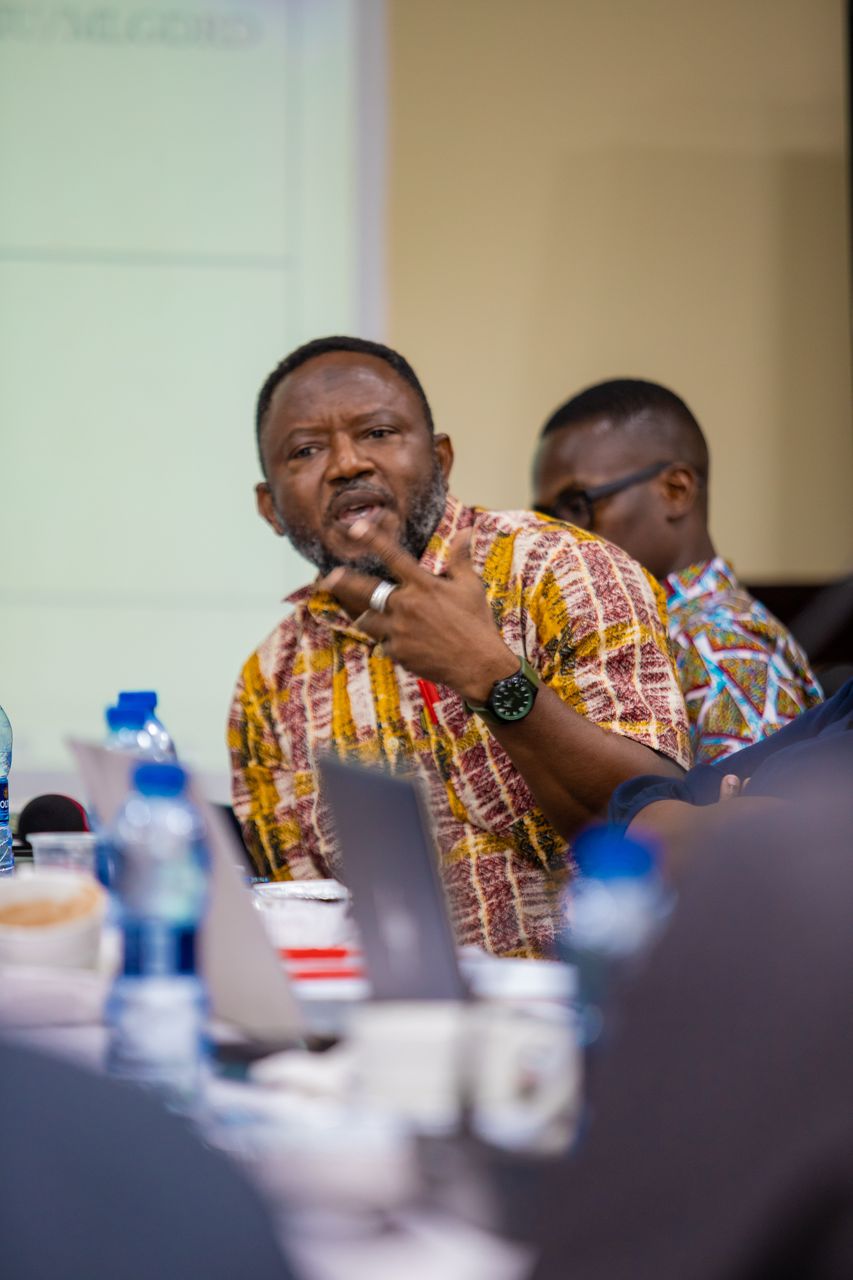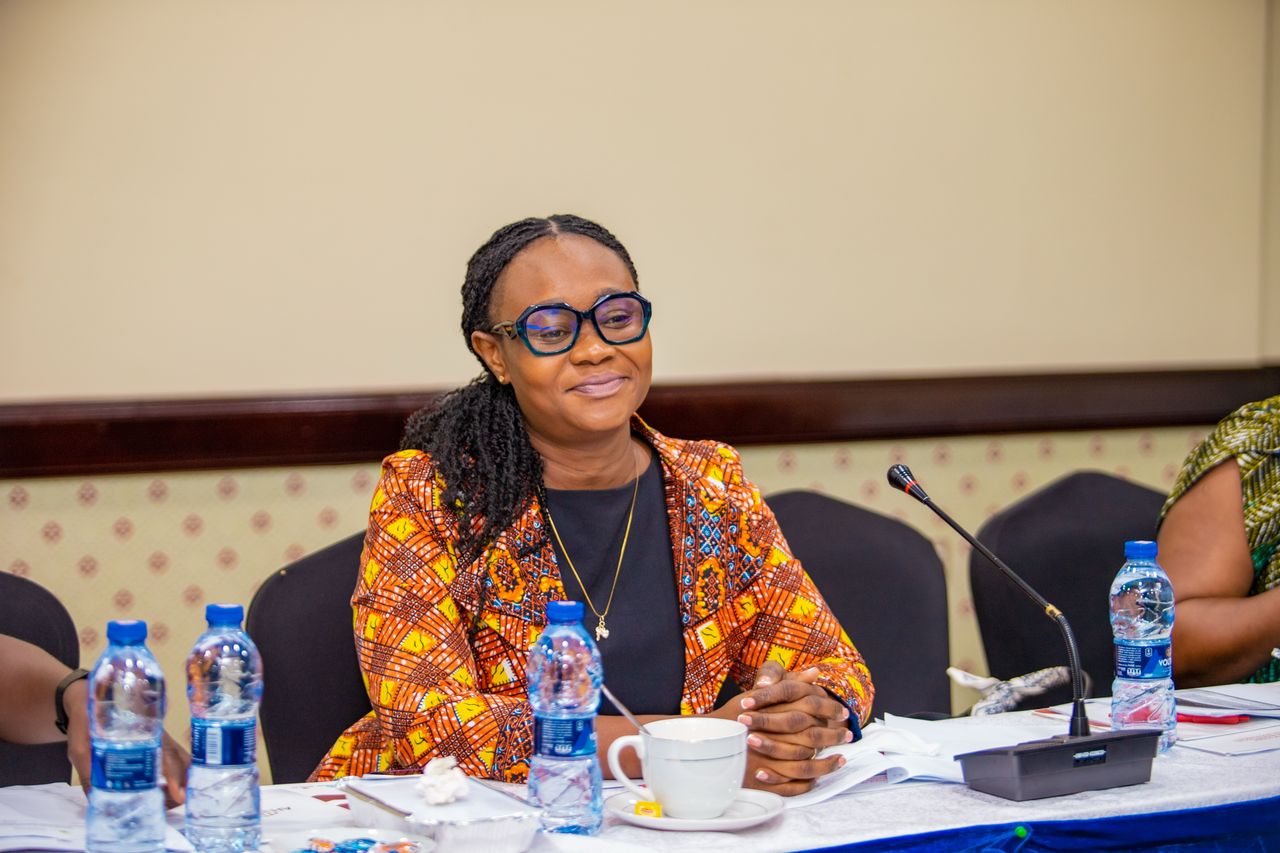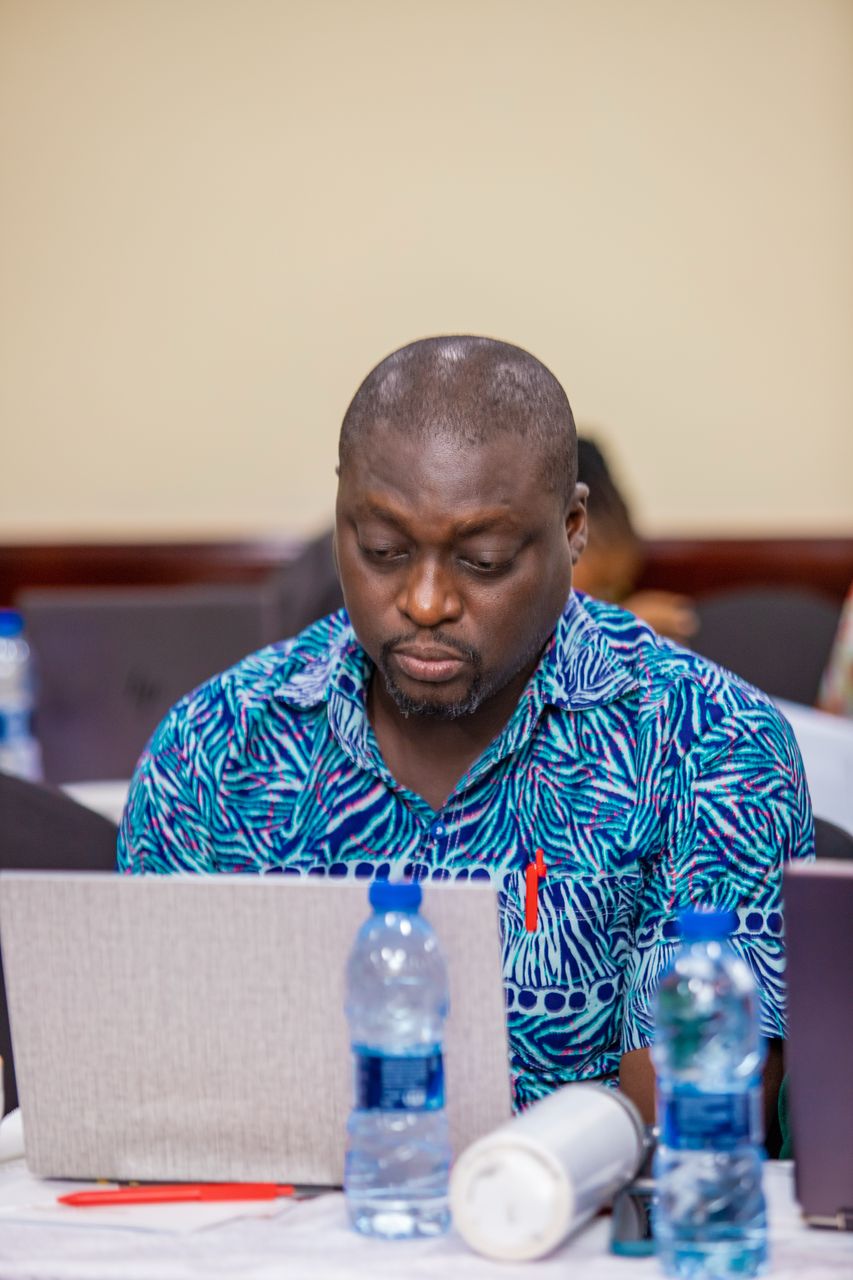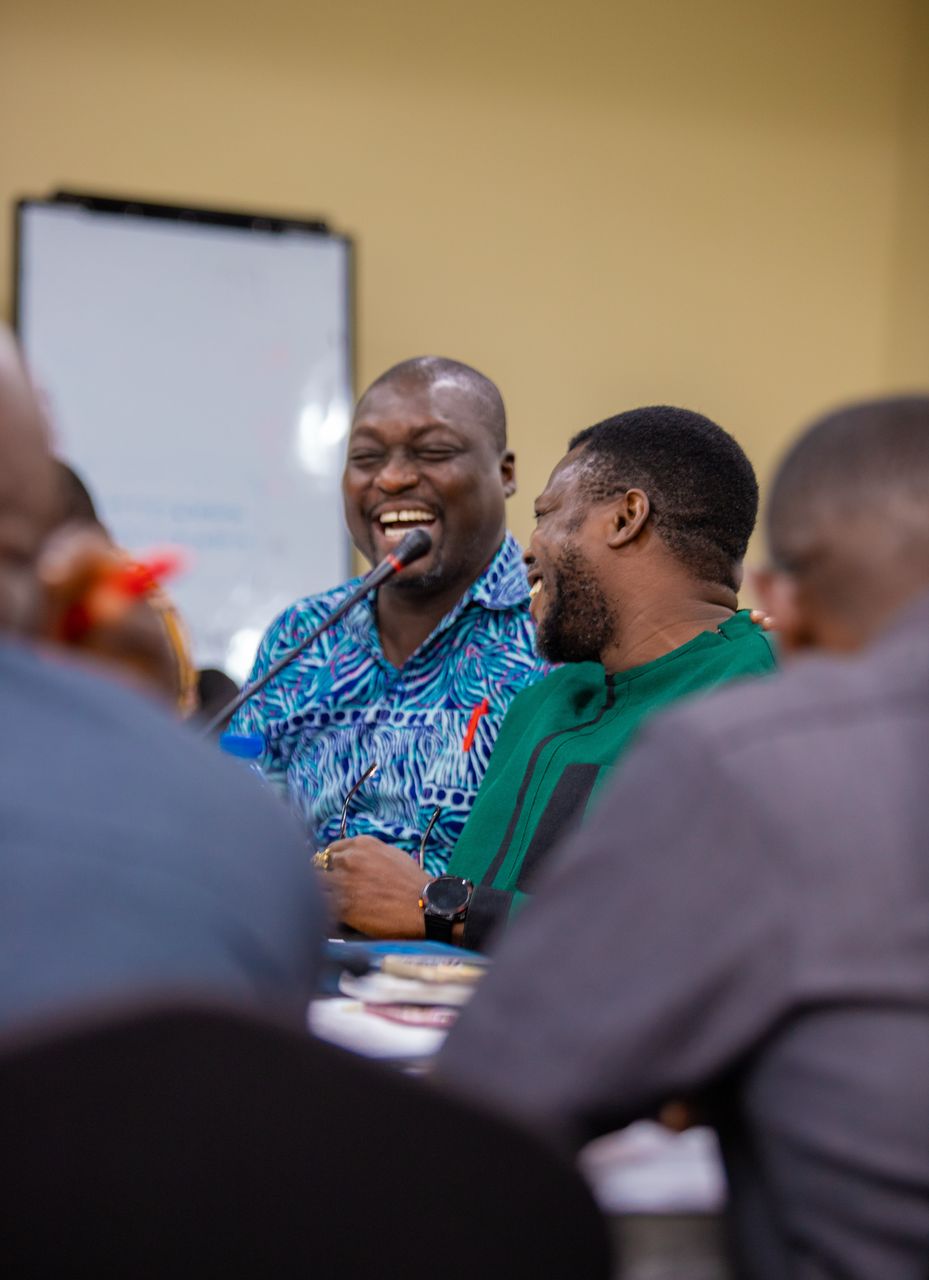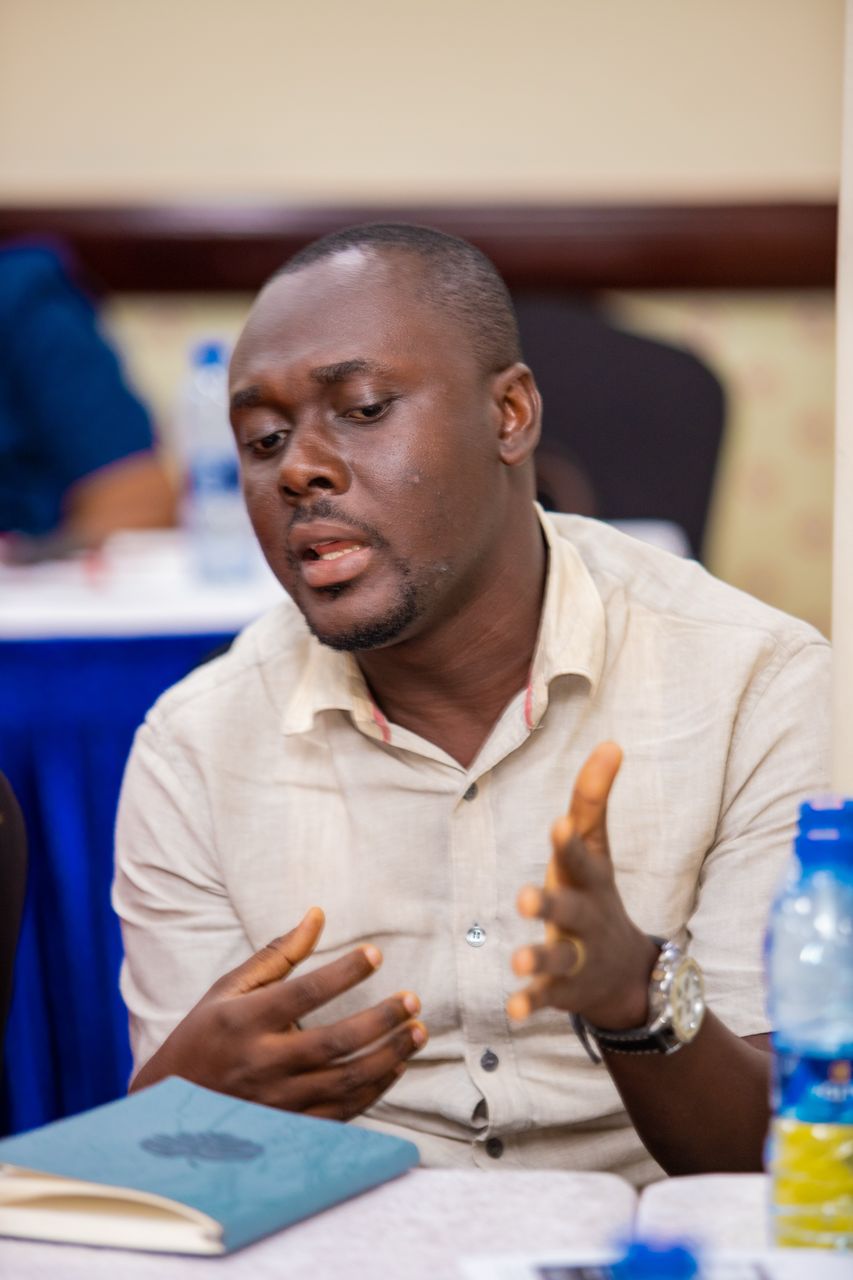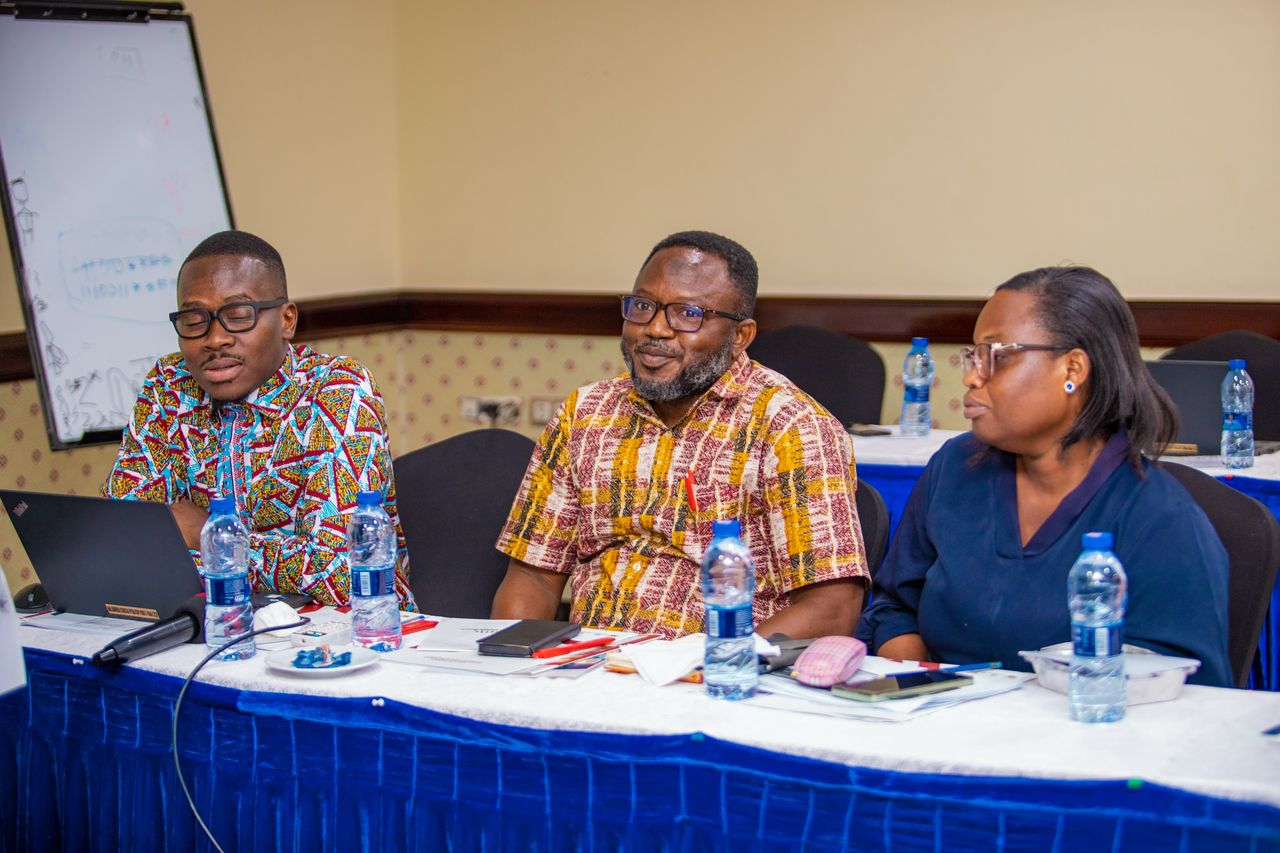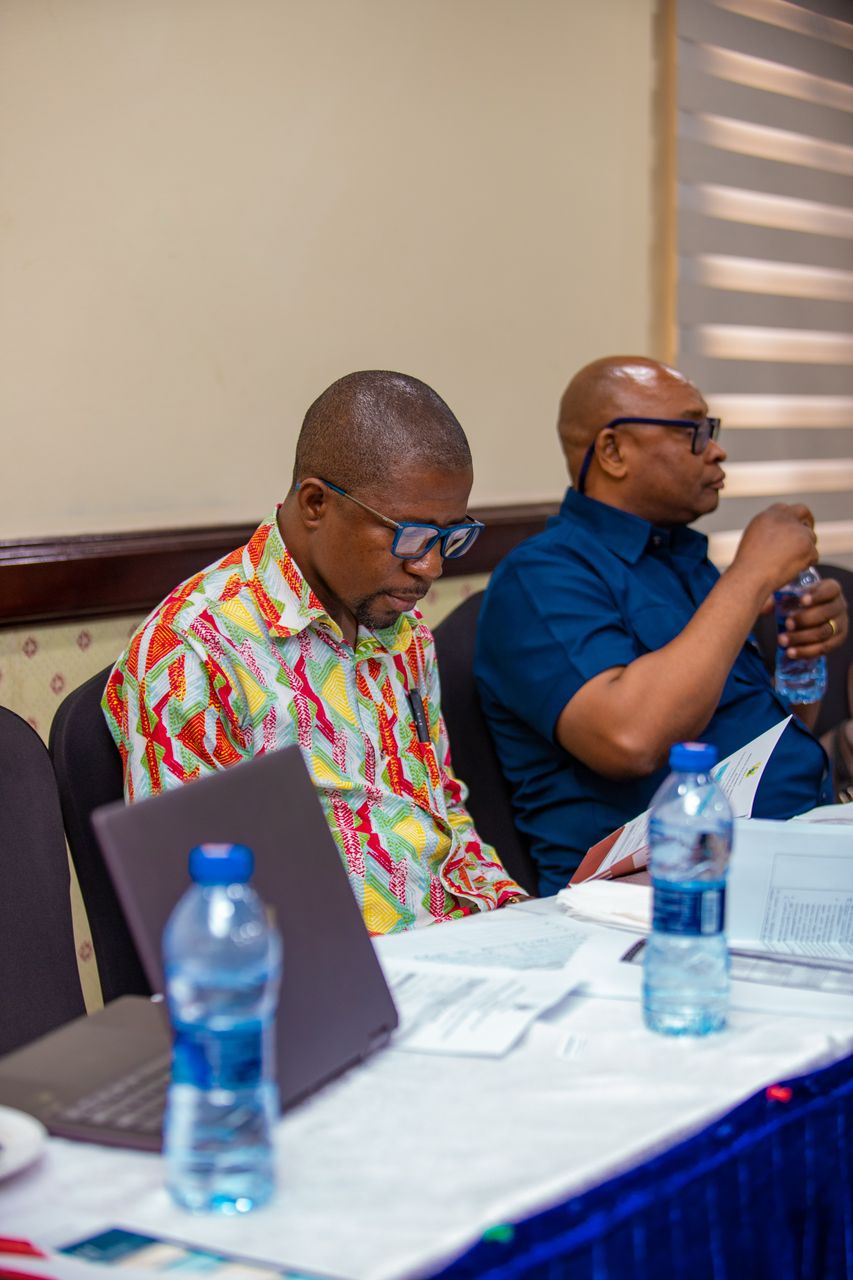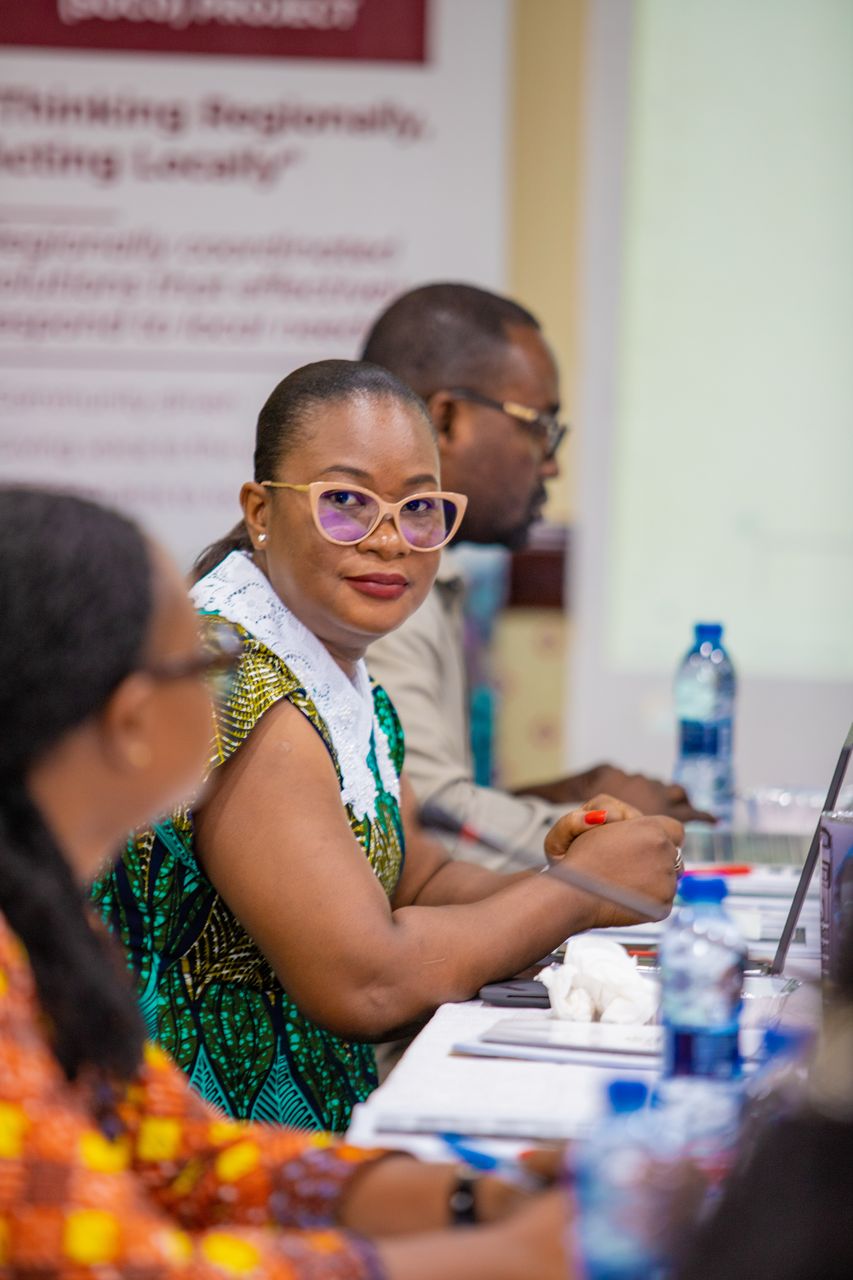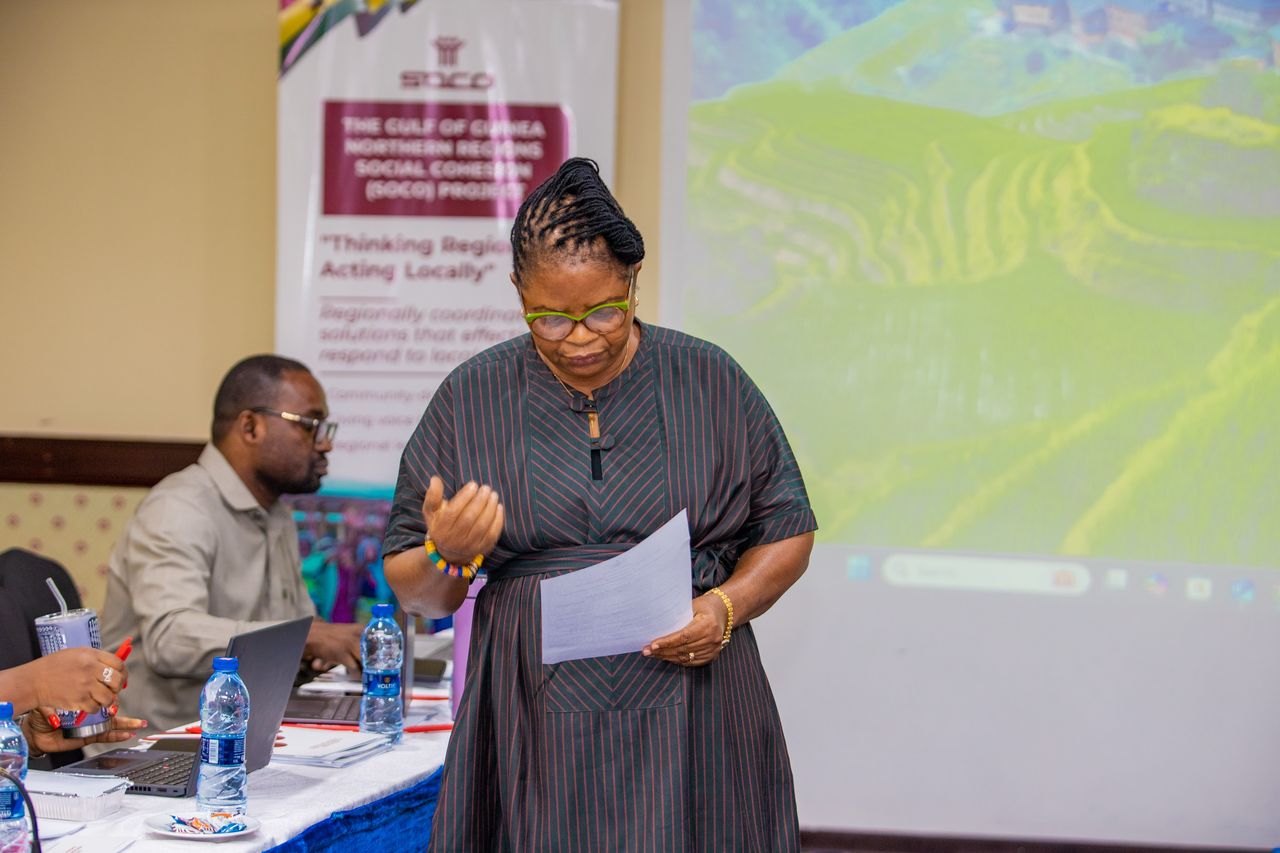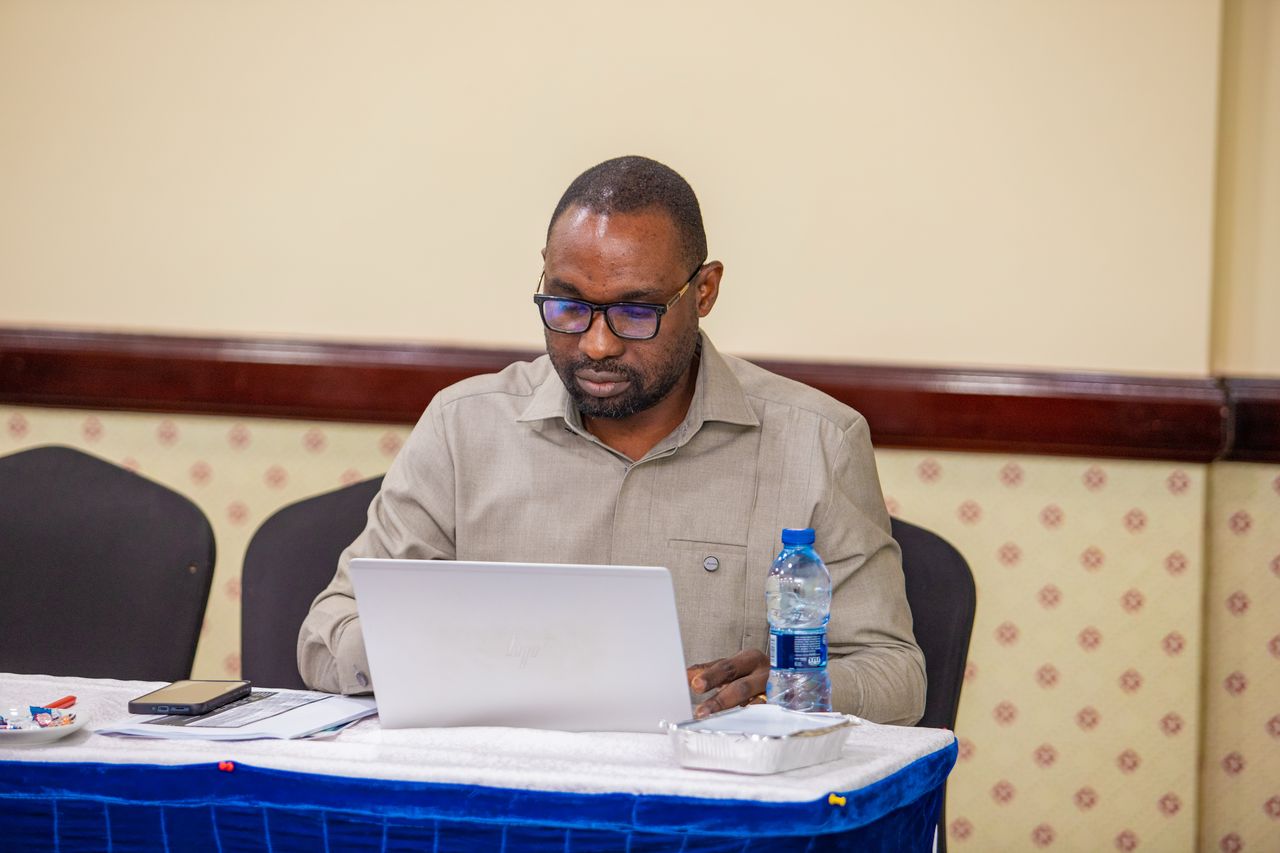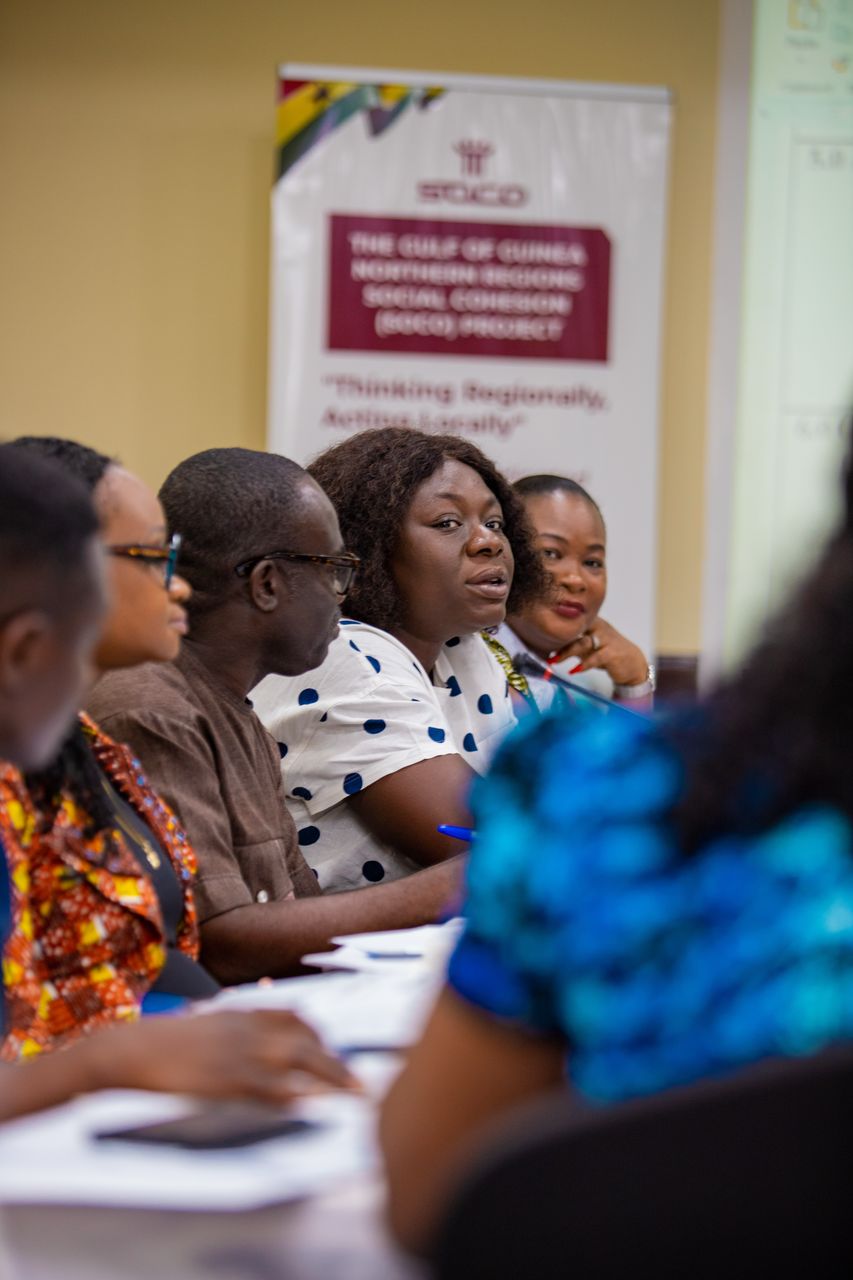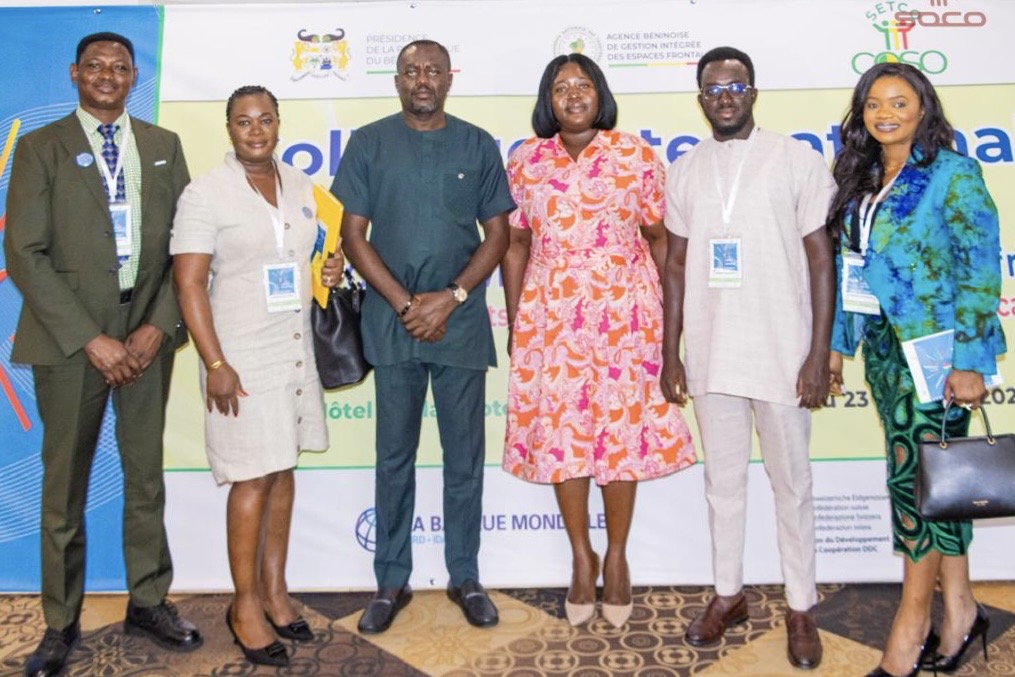On March 19, 2025, the Gulf of Guinea Northern Regions Social Cohesion (SOCO) Project convened its 5th National Technical Committee (NTC) Meeting in Accra, bringing together key representatives from the Ministry of Local Government, Chieftaincy, and Religious Affairs (MLGCRA), the Project Implementation Unit (PIU), and other key stakeholders to assess progress, address implementation challenges, and refine the 2024 Annual Work Plan and Budget (AWPB), provide expert recommendations, and ensure strategic alignment with the project’s overarching goals.
Delivering the opening remarks on behalf of the Chief Director of the Ministry, Mr Kwabena Denkyira, Director of the Human Resource Management Directorate at MLGCRA, acknowledged the transformative strides made in the project’s first-year implementation cycle while setting an ambitious tone for the next phase. He emphasised the critical role of the NTC in ensuring that the project implementation remains technically sound, contextually relevant, and impactful in achieving its development objectives.
“Since our last engagement, remarkable progress has been made in delivering critical infrastructure and social interventions across our 48 beneficiary districts. As of February 28, 2025, 489 out of 530 subprojects under the 2023 implementation cycle have been completed and handed over for use, while 40 are at advanced stages of completion. However, six subprojects are currently being considered for termination due to various constraints. This represents an overall completion rate of 92%, underscoring our collective commitment to driving SOCO’s objectives forward.”
The Chief Director’s speech also highlighted the outlook for the second implementation cycle, stating:
“For 2024, contracts have been awarded for 680 sub-projects, 65 of which have already been completed, marking a 10% completion rate. The remaining projects are progressing at various stages, and measures are being taken to expedite execution while ensuring quality and sustainability. These projects represent a significant investment in strengthening local economies, enhancing resilience, and promoting sustainable development in beneficiary communities.”
At the meeting, committee members analysed project bottlenecks, discussed key recommendations for improving implementation efficiency, and explored strategies for ensuring the sustainability of SOCO-funded interventions. Discussions centred on strengthening monitoring mechanisms to enhance transparency and accountability in subproject implementation, as well as enhancing livelihood interventions under the Local Economic Development (LED) component to ensure that economic activities directly benefit local communities.
The NTC serves as a specialized technical advisory body, responsible for reviewing the AWPB, analyzing implementation strategies, and offering expert guidance to enhance the efficiency and effectiveness of project delivery.
As the SOCO project transitions into its second year of implementation, the NTC is committed to ensuring that the AWPB reflects a well-structured, technically coherent, and responsive framework for achieving the project’s goals. The committee’s deliberations will inform upcoming activities, resource allocations, and programmatic adjustments to optimize impact.
The meeting concluded with a renewed focus on ensuring that the SOCO project remains a catalyst for social cohesion, economic resilience, and inclusive development across northern Ghana’s border communities.
